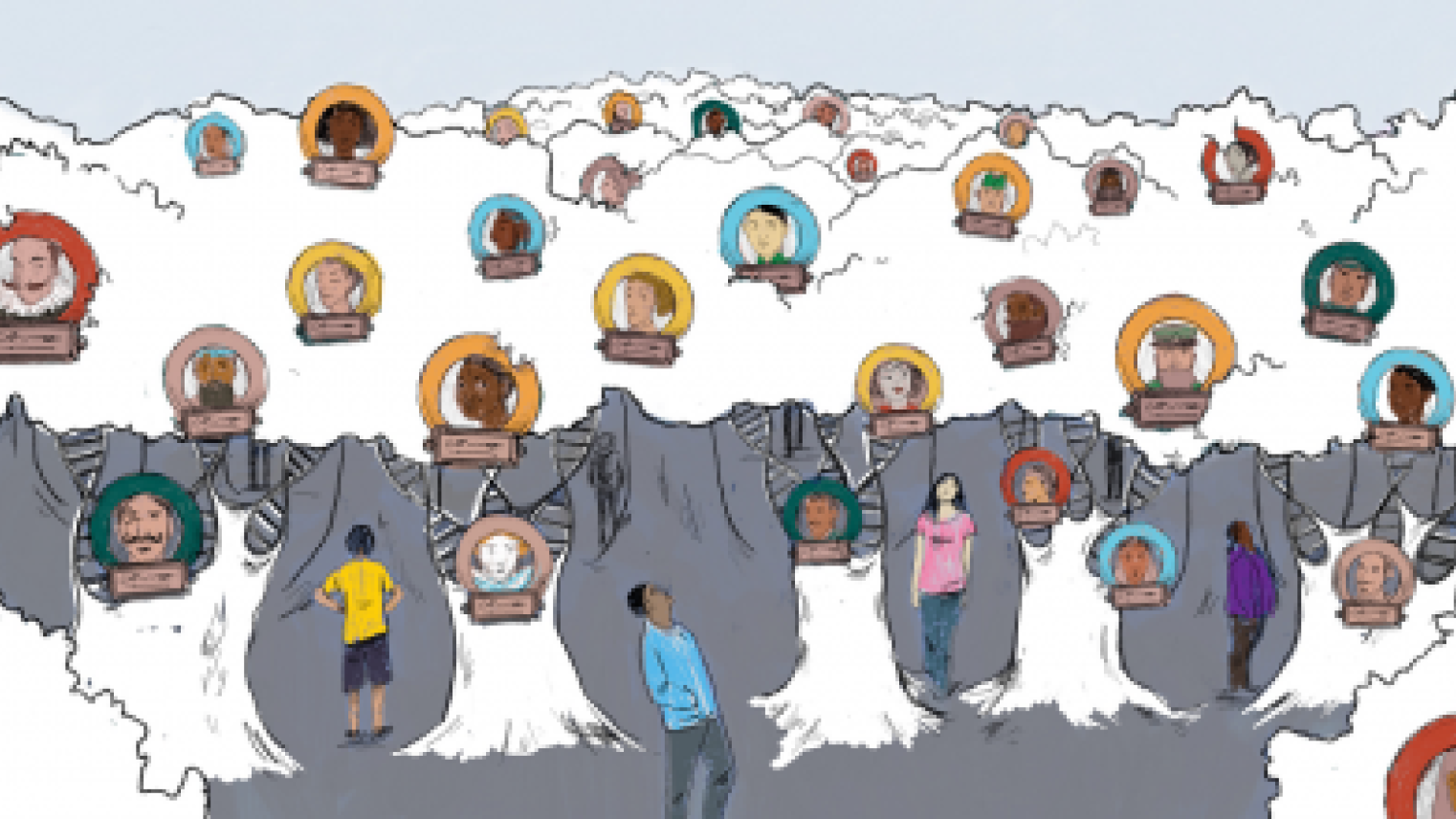Co-hosted by Synapse Trans-Disciplinary Seminar Series by the School of Culture, History & Language and the Australian National Centre for Latin American Studies
Recent studies into the origins of Africans displaced by the transatlantic slave trade have been concerned with understanding how experiences of culture, kinship, and ethnic belonging shaped the subjectivities of enslaved individuals and their descendants in the Atlantic world. Recuperating knowledge of the cultural identities effaced by slavery can be a way of restoring a sense of dignity and individuality to its victims, and redressing the cultural trauma inflicted by the imposition of racial categories, which historically focused on bodily traits (skin colour, 'blood,' cranial measurements) as a locus of identity.
Curiously, over the past three decades, the body has taken centre stage again amidst efforts to reconstruct the origins and cultural identities of historically enslaved Africans and their descendants. In molecular anthropology, DNA is regarded as a kind of biological 'archive' that can provide unprecedented insights into human histories. The completion of the Human Genome Project in 2003 marked a watershed in researchers’ ability to access genomic information, and since there has been an explosion of DNA studies mapping human genetic variation across the globe. These data, scientists hope, can help shed light on the ancestry and biological kinship structures of historically enslaved and displaced populations, particularly where these details have been misrepresented or omitted from historical records. This idea has also been taken up by a burgeoning direct-to-consumer (DTC) genetic ancestry testing industry, which portrays DNA as a tool that can empower customers to uncover their 'true' ethnic origins.
Despite the popularity of these products, critics have raised concerns about the objectivity of genomic data as a tool for reconstructing personal ancestries, as well as the potential of these technologies to herald a return of biological-reductionist notions of identity. In turn, these academic debates hold broader ramifications for the definition of contemporary ethnic and racial categories, for instance in the implementation of public policies intended to redress the legacies of slavery and colonial violence.
Drawing on research carried out in Brazil and the United States, this talk explores the pitfalls of treating DNA as an objective arbiter of identity, arguing that readings of genetic ancestry are invariably guided by cultural and political debates around 'race' and nationhood. At the same time, we consider possibilities for reading DNA 'against the grain', including the practices of citizen scientists who are using genetic-genealogical methods to try and reverse the erasure of their own family histories and ancestral identities.
This is an online-only event, co-hosted by the ANU Australian National Centre for Latin American Studies.
About the Speaker
Dr Sarah Abel is an interdisciplinary social scientist whose research specialises in dynamics of racism and antiracism in American societies. In 2016, she received her PhD in Social Anthropology and Ethnology from the EHESS Paris, for her doctoral thesis on the sociopolitical uses and scientific construction of DNA ancestry tests in Brazil and the United States. Her work appears in Current Anthropology, Comparative Studies in Society and History, Ethnologie française, and New Genetics and Society, and her forthcoming monograph, Permanent Markers: Race, Ancestry, and the Body after the Genome, will be published by University of North Carolina Press in late 2021. Sarah is currently a British Academy Postdoctoral Fellow affiliated to the University of Cambridge’s Centre of Latin American Studies, and a Bye-Fellow of Murray Edwards College. Her present research looks at representations of skin colour in contemporary Mexican science and visual culture.
Event Speakers

Dr Sara Abel
Dr Sarah Abel is an interdisciplinary social scientist whose research specialises in dynamics of racism and antiracism in American societies. In 2016, she received her PhD in Social Anthropology and Ethnology from the EHESS Paris, for her doctoral thesis on the sociopolitical uses and scientific construction of DNA ancestry tests in Brazil and the United States.
